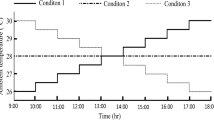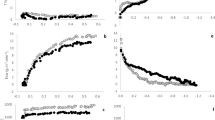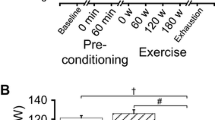Abstract
We investigated body-fluid distribution in resting humans, during short-term, whole-body skin temperature modification, in which core temperature changes (ΔTc) were minimal. Seven males participated in hot (36.2°C (s.d. 0.7), 44% relative humidity (rh; s.d. 3)), temperate (22.0°C (s.d. 1.0), 52% rh (s.d. 6)), and cool trials (14.4°C (s.d. 1.6), 74% rh (s.d. 9)), while seated at rest. Total body water (TBW), extracellular fluid (ECF), erythrocyte (RCV) and plasma volumes (PV) were measured using a simultaneous radionuclide dilution technique. In the cold, PV contracted by 205 ml (±60) by the end of exposure (p = 0.04), while in the heat, PV expanded 108 ml (±123; p = 0.02). Both RCV and TBW remained stable, regardless of the environment. Despite fluid movement across the vascular wall, ECF, interstitial and intracellular volumes were relatively unaffected by skin temperature. It was concluded that, at rest, and with minimal ΔTc, the intravascular fluid volume was dependent on prevailing environmental conditions, and its impact on local skin temperature and venomotor tone.
Similar content being viewed by others
Author information
Authors and Affiliations
Additional information
Accepted: 12 July 1999
Rights and permissions
About this article
Cite this article
Maw, G., Mackenzie, I. & Taylor, N. Can skin temperature manipulation, with minimal core temperature change, influence plasma volume in resting humans?. Eur J Appl Physiol 81, 159–162 (2000). https://doi.org/10.1007/PL00013790
Issue Date:
DOI: https://doi.org/10.1007/PL00013790




